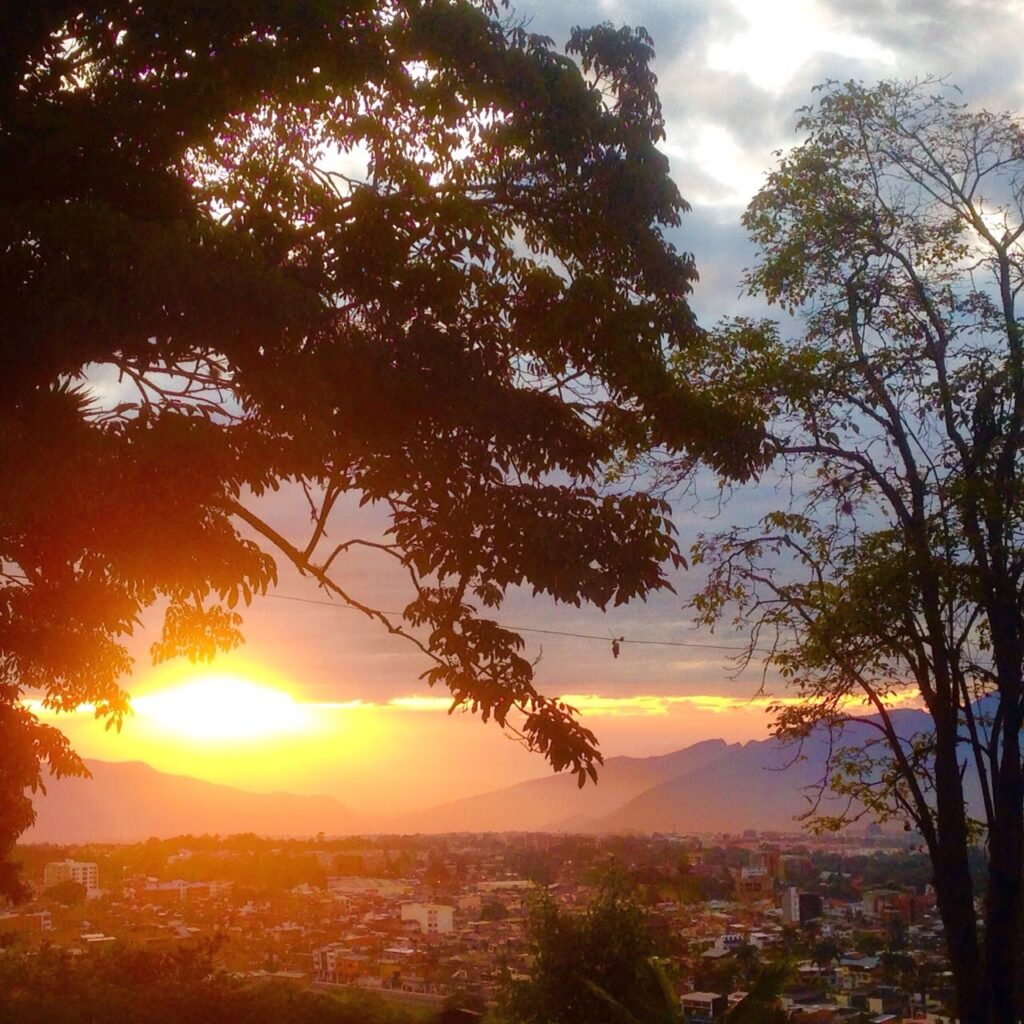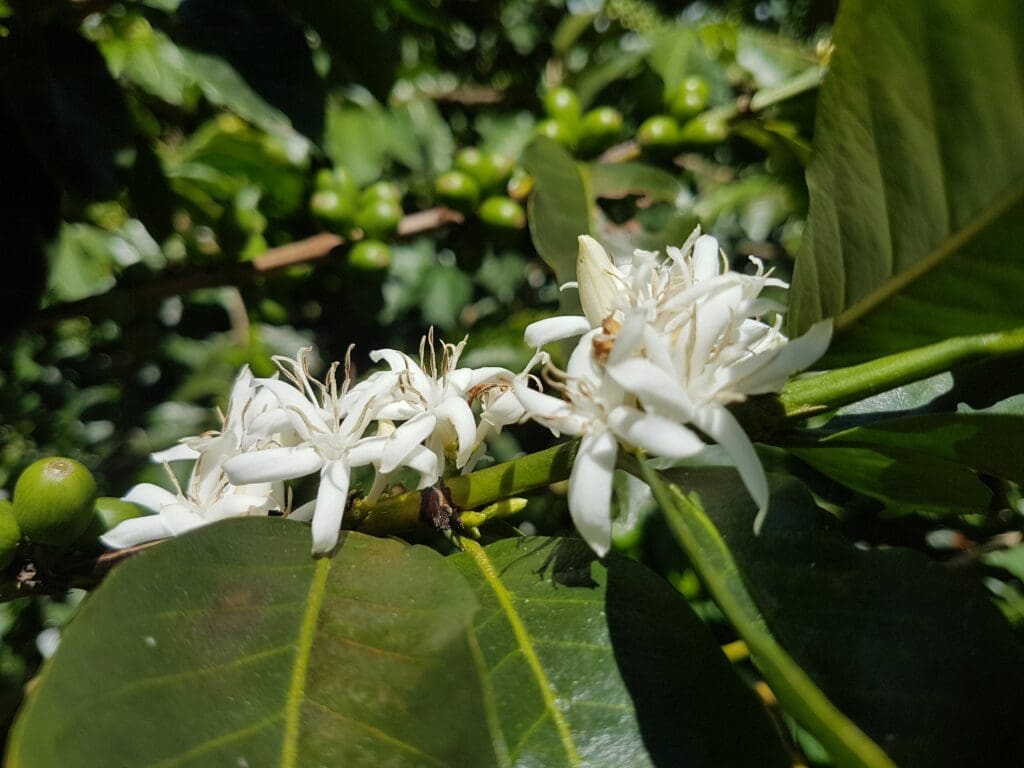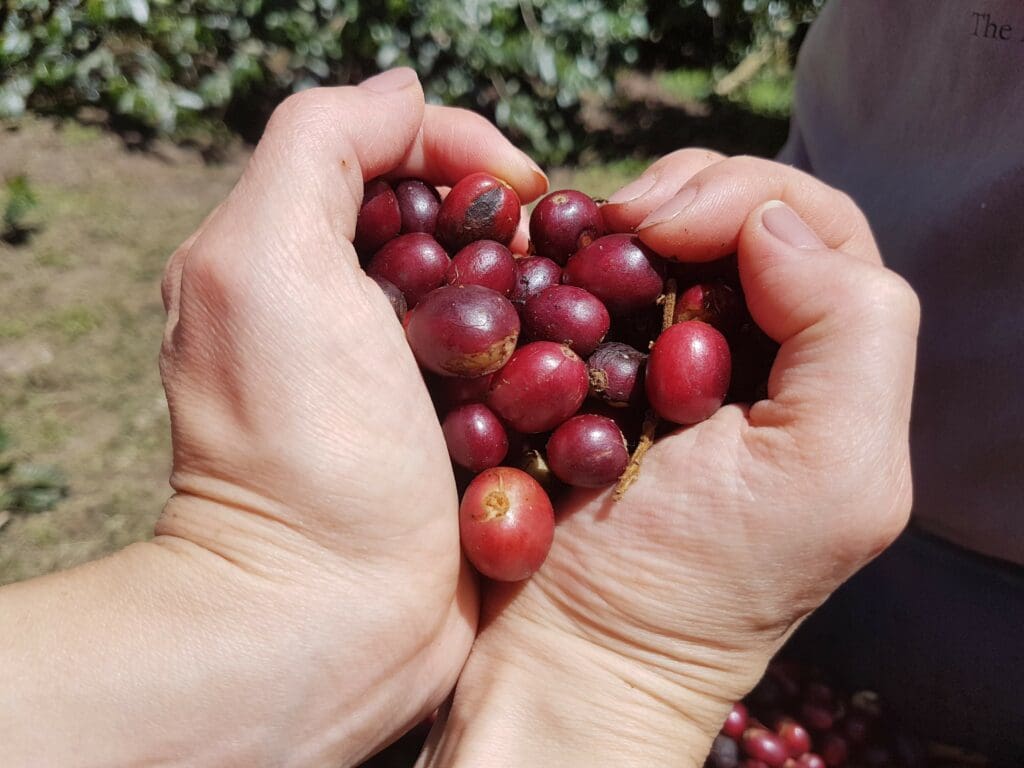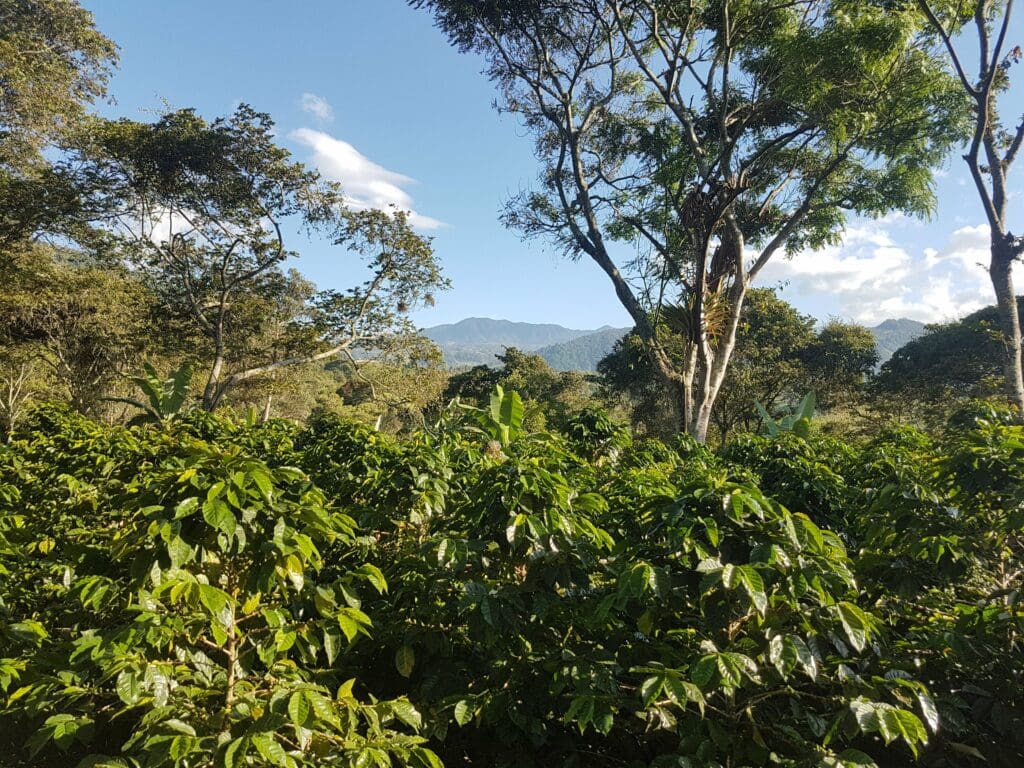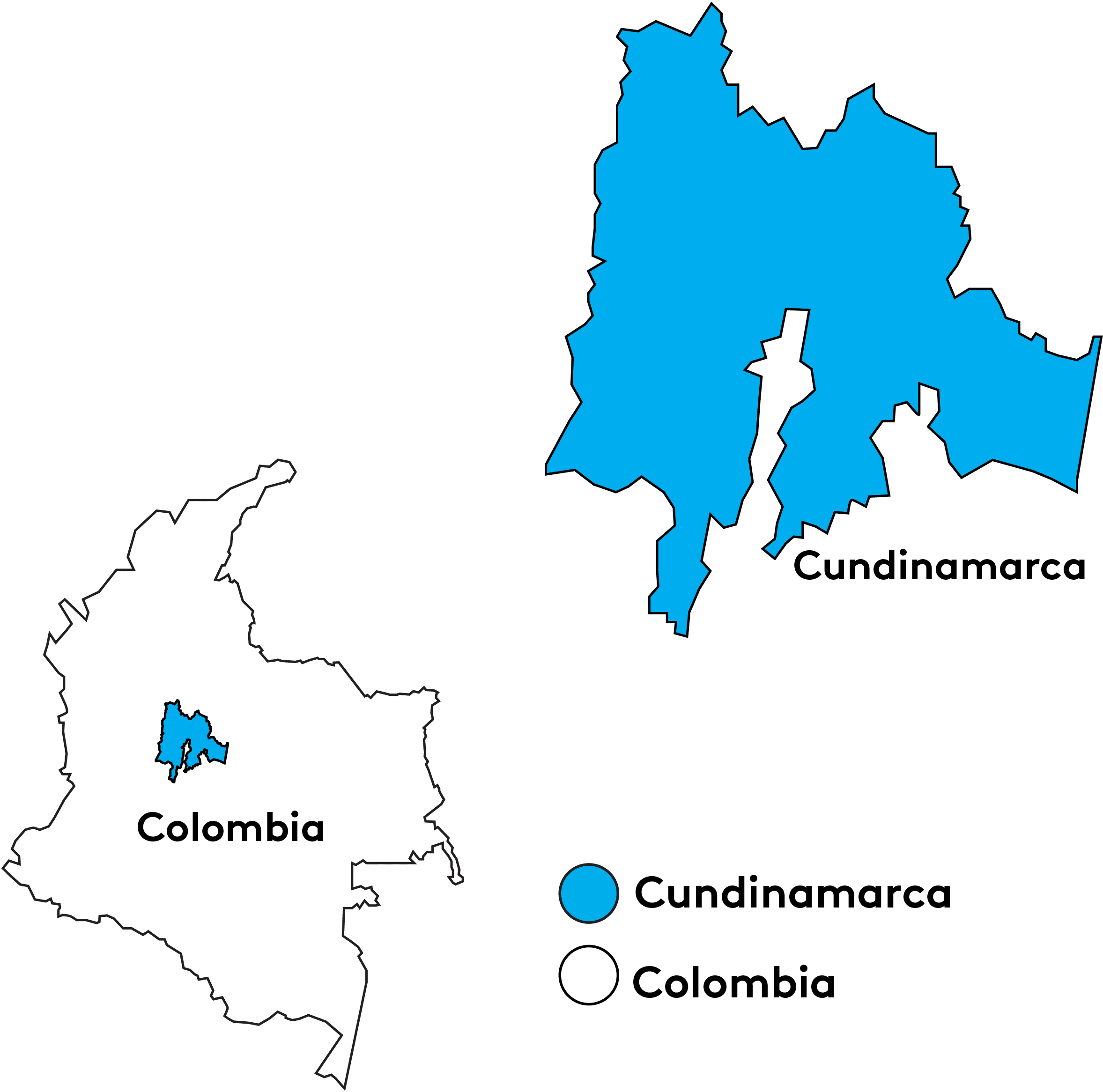Rodrigo Gutierrez Andrade owns two farms in the Sumapaz province of Cundinamarca Department, Colombia, just a stone’s throw from Fusagasugá town. Since 2013 both of his farms, San Isidro and Los Guamos, have focused on using best organic practices earning Organic and Rainforest Alliance certification.
Coffee has played an integral role in the area for over a century. Rodrigo’s farms are part of what used to be the Hacienda Coburgo, which was owned by the Bonnet-Schroeder family starting in the 19th century. The family worked with other farms to raise the status of coffee production in the region, giving it prominence in the region’s economy as coffee cultivation developed. Rodrigo became one of the land’s new owners in the 1980’s. His family brought their passion for coffee from their home in Antioquia to Fusagasugá and focused on preserving the local approach to coffee production, which includes organic and regenerative farming practices. Today, thanks to a group of producers around the Sumapaz region, the area has attracted the attention of organic coffee consumers from around the world.
Cenicafé’s Research & Development work on coffee quality and disease resistance in the region had a major impact on the varieties planted at San Isidro. Castillo accounts for 18,500 trees on the farm, while the additional Colombia, Tabi, and the relatively new Cenicafe 1 coffees comprise a total of 30,000 shade grown trees spread over 5 hectares.
80% of the coffee at the farm is picked and processed between May and July, with the remaining 20% being harvested during the fly crop period in October and November.
Processing practices stay in line with the organic and regenerative farming practices of the farm, beginning with washing all harvested cherries in treated water to make sure no toxins contaminate the crop. Then, cherries are moved to stainless steel tanks equipped with a density sorting system, where they are dry fermented for 24 hours as whole cherries before being sorted and pulped. The dry fermentation process is repeated for another 24 hours before all of the mucilage is removed. The coffee is then dried on raised beds for 18–20 days. Along with its processing facility, San Isidro has storage cells where the coffee is kept at an average of 50% relative humidity and 20° C until it is finally ready to be milled and exported.
